These were the fitness entry requirements for Tough Mudder
10km run
25 push ups
6 pull ups
45 metre swim
Sweeeet!! I’m in!! I probably need to increase my running sessions but otherwise I should get through.
When I don’t have any set goals around my fitness (training for the sake of training) my training normally consists of a mixture of HIIT resistance training/Crossfit style training, strength training and trail running. I train to be stronger, faster, fit and feel awesome.
So all that being said here is what I did to prepare for the Tough Mudder:
Three Trail Runs a Week
These were about 8 km runs on an unstable terrain and included going off track to do some uphill sprints on the side trails. I never do steady state cardio, besides the fact that I find it absolutely boring and un-motivating. Steady state cardio is only useful if your goal is to do endurance sport such as a marathon. As far as fat loss, building strength and speed, steady state cardio is useless.
 (above) Trail running… Tough Mudder Style!!
(above) Trail running… Tough Mudder Style!!
Strength Training
Twice a week I attended a Strength And Conditioning class at Dominance held by Murray Ballanden and learnt how to incorporate kettlebells into my workouts which helped to increase overall body strength and target weak areas such as my upper back and core. Murray is a great coach and loves working with people on repairing their injuries and correcting the imbalances (and like Mark is very particular about perfecting technique).
Strength Training consisted mainly of Plyometric and explosive movements such as clean and press, dumbbell snatch, overhead barbell press, torsanator, spider-man push-ups, jumping lunges, Farmers Walks, Pull Ups. I structured the reps and sets in a manner that I was training mainly fast twitch fibres.
I still incorporated Deadlifts, Squats, Cyclists squats and weighted lunges to maintain overall body strength. I trained these exercises at a general rep range of 8 to 12 reps.
The goal for training was to be fast, fit and strong to be able to run the distance of the 20km as well as complete all the obstacles. And at that stage I didn’t really know exactly what the obstacles were going to be so I felt I had to cover al bases.
 DIET AND NUTRTION
DIET AND NUTRTION
Generally speaking my diet is Paleo and mainly consists of meat (lots of meat), fresh vegetables and healthy fats such as fresh coconut milk, coconut oil, organic butter, avocado and seeds. Carbohydrates are mainly sweet potato, pumpkin and berries. Of course on the weekend I include a few tasty treats but as a rule of thumb they must be gluten free (listen to Marks gluten podcast here to understand why).
My food intake remained basically unchanged. However due to increasing anaerobic activity I did increase my carbohydrate intake and had either sweet potato, pumpkin, berries, or a couple of figs directly after training. Figs contain high amounts of potassium and the glucose will be directly absorbed by the muscles aiding in recovery. (Figs after training only applies to people who have a lean body type and the goal is not weight loss).
I do occasionally enjoy a glass of wine over dinner on the weekends or when I catch up with friends but leading up to the Tough Mudder I eliminated alcohol as I do notice a difference in my training, energy levels and mental clarity even with one drink and I wanted to be feeling 100%.

SUPPLEMENTATION
It’s no secret I use Poliquin’s brand of supplements. I’ve been supplementing and training for awhile and I have to say that I have only started to notice the benefits of taking supplements since using his brand. Reason being they have a higher and purer concentration then the average grade supplement.
For recovery I used Glutamine and Glycine; both are amino acids and assist recovery.
 The supplements I like to use on a daily bases are:
The supplements I like to use on a daily bases are:
Vitamin C
Multi-Vitamin
B vitamin complex (in the Poliquin brand this is called methylators 3.0)
Fish Oil
Magnesium
Vitamin E
CLOTHING ATTIRE
I knew it was going to be wet and muddy so I wanted clothes that were still light besides being saturated.
My shoes needed to be comfortable and light as well and most of all they needed to stay on inspite of the mud pits trying to suck them off.
I wore Skins, and a Dry Fit top. The shoes I opted for were Barefoot Merrells made by Vibrim and they were fantastic!!
I purchased this shoe 3 months earlier as I was finding my feet were very heavy on my trail runs using Asics. I now keep my Asics for training at the gym and Merrells are for exploring nature 🙂 I simply love them!
 It’s a funny sensation to begin with to feel the rocks under your feet when you run and not having the same support you do from your average runner but it definitely feels more natural once you get used to them.
It’s a funny sensation to begin with to feel the rocks under your feet when you run and not having the same support you do from your average runner but it definitely feels more natural once you get used to them.
ON THE DAY
My start time for the Tough Mudder race was 12:45
Instructions from the event organisers was to be arrive 2 hours early prior to the race to allow for registration and parking.
Breakfast was at 07:00 and I ate my usual- Meat and Avocado with mushrooms.
I made some chicken mince burgers the night before with coconut milk and grated carrot and ate them a few hours after breakfast. I opted for a high fat, high protein approach.
The aim for this is to still have high protein but with fats to slow down the digestive process and keep blood sugar nice and even. Mark also noted that I didn’t need to carb load or do anything like that.
Mark suggested the perfect pre race meal would be organic rice crackers with ABC spread on them. This combo is perfect as it has slow digestion carbs that don’t have an immediate impact on blood sugar and the fat from the ABC spread will further slow the digestion and fill me up so I would be sustain thought-out the race.
YUM!!! I love ABC spread! I just wanted to layer that stuff on! But I didn’t. The worse thing would be to get indigestion during the race. I had about 5 crackers in total.
Mark added electrolytes to a bottle of water which I drank slowly over the morning before the race. This definitely helped keep me hydrated throughout the race. He also used the FAT Tool on my calves with a warming cream. I have to say, I think it really helped. It released the muscle fascia around my calves and shins which helped me not get shin splints on the run. It also (almost instantly) improved my flexibility.
I also took Beta Alanine and BCAAs before the race.
THE RESULTS
I have to be honest and say that I was very happy with my preparation for my first race.
I was very comfortable in what I was wearing both with clothes and shoes. I felt hydrated and energetic throughout the whole race and only stopped at one water station. While others scoffed down bananas throughout the race I felt I had no need to and kept running.
The only thing that slowed me down was the banking up of people towards the end of the course making me hold out a little bit longer to get to the end.
My favourite part of the race was seeing my man’s face in the crowds about half way through and he just kept popping up everywhere right through to the end. He made sure I had the right supplements before and after the race and that I was eating enough of the right foods, he was patient and supportive with my increased training even though it took up more of my time and he never complained about me getting up for my early morning runs.
I’ve received a few queries about training for the Tough Mudder so I hope this article has helped to answer a few questions. The best advice I can give you if are wanting to do the Tough Mudder course or a similar race or competition is, don’t put off tomorrow what you can do today.
If you need a push in the right direction with either your health or fitness goals we can definitely help you.
Contact us at Enterprise Fitness 1300 887 143. Or, if you want to chat to me directly my email is Kristine@enterprisefitness.com.au

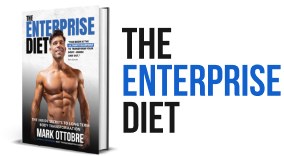


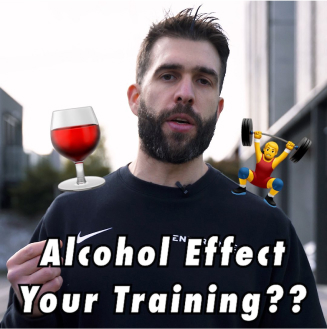
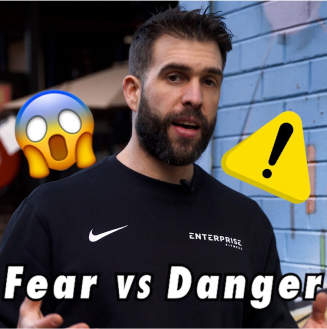
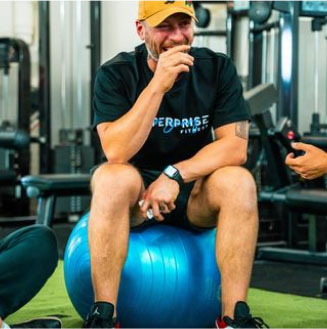

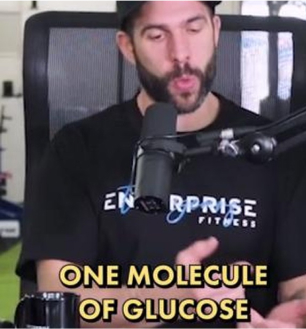
Great article Kristine, I enjoy reading every step you took to prepare yourself.. 🙂
Thanks Silvana!
Go Vegan! With all that meat, someday it’ll hit you hard and effect your health..